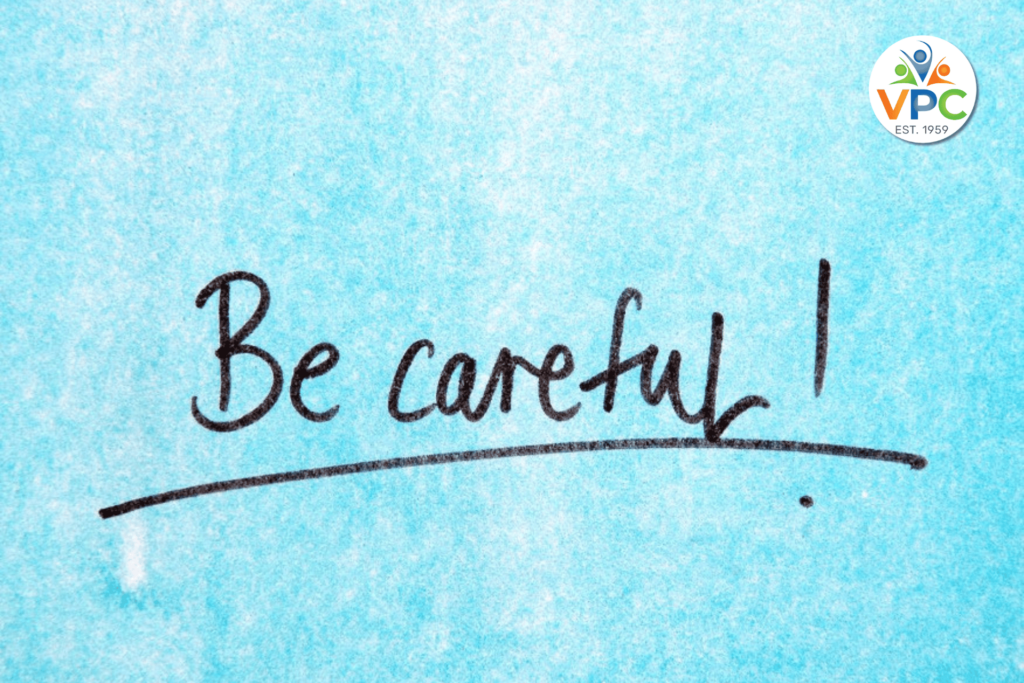
When you are walking on eggshells.
Katrina Gow
Trying not to provoke an uncomfortable reaction from your child can feel like you are walking on eggshells. What are these metaphorical eggshells and why do I feel this way?
Feeling like you are ‘walking on eggshells’ around your child is not fun. The essence of the metaphor is that you need to be very careful because if you break the eggshell, something bad will happen. However, sometimes it is better to stumble, trip, and break a few eggshells than to hover in the awkwardness of trying to get it right.
Imagine this scenario: Your child has started refusing to go to school. It feels like anything you ask of them is met with a terse ‘no’. If you push a little, the situation escalates and invariably ends in a screaming and yelling match, which solves nothing and leaves everyone involved feeling bruised and battered. You feel stressed and tense, not knowing what is going to happen. It feels like everything you do or say is met with a meltdown. The thought that you have to tell your child about the appointment with their teacher tomorrow leaves you feeling tight in your chest and sick in your stomach. You feel like you are walking on eggshells.
Understanding the feeling?
When you feel like you are going into battle with your child and you are worried about what might happen in your body, your fight-and- flight response (FFF response) is getting a little squeeze. When this happens, you are responding to a feeling of fear that comes from your brain and is translated to your body in a way that says, “Get out of here quick before you die.” Your FFF response is not very good at differentiating between a real or imagined threat and will choose to sound the alarm with the idea that it is better to err on the side of caution. It is very difficult to think clearly when this is happening and very easy to get caught up thinking about all the bad things that are happening or that could happen.
Similarly, your child will experience the same feeling as you, although their story about feeling terrified will differ. If they are yelling, screaming, refusing, or shutting down, their FFF response is also activated. It is unlikely that a good conversation will arise when both you and your teen or child are feeling fearful and stressed. What can you do?
Remember, feeling fearful and anxious is at the root of both your teen’s feelings about what you are asking them to do and your feelings toward them now. This understanding can provide the first step towards a more peaceful and less fractious relationship.
The question to pose to yourself is, “What am I worried about and is it a threat to life situation.” If it is not a life or death moment then you have time. It may mean that today your child stays home and you work from home or you may be able to take them to school later. Maybe your partner or another family member is available to help. There are many possibilities that could provide a supportive hand. Once you realise you have time and nothing bad will happen, you give yourself the capacity to move out of your FFF response and into a state where you can listen, communicate, and problem-solve the situation with your child.
Understand your relationship with stress:
The quickest way to make your child feel better about their situation is for you to feel ok about it. The various strategies available that calm your nervous system are not complex, but they can be hard to engage, especially if you spend a lot of time worrying. However, it is important for you to find people and activities that can help. Here are some options to consider:
- Conscious breathing: Focussing your mind on a long, slow exhalation followed by a deep inhalation, repeated a few times, is a great way to engage your parasympathetic nervous system, which is involved with rest and relaxation.
- Movement—some form of exercise that suits your life. Ideally, the exercise is challenging enough that your mind stays engaged and willing to do it but not so challenging that it feels too hard or overwhelming to sustain.
- Journalling is great because it facilitates reflection. When you reflect on things that have happened in a calm state, you often come up with solutions or other ideas about how you could do things differently next time.
- A supportive person: Someone who might be going through something similar to you can be a great resource. A supportive friend, GP, and other family members are also important. These people can help you problem-solve and see other perspectives, which may help.
Ask yourself why?
Using the word ‘why’ and posing this question to each subsequent answer is a way to promote curiosity, and develop a deeper understanding of the problem. For example;
Q: Why won’t my child go to school?
A: I don’t know because I haven’t asked
Q: Why haven’t I asked?
A: I haven’t had time?
Q: Why haven’t I had time?
A: I have felt too tired?
Q: Why Do I feel too tired?
A: I am too busy/not sleeping well/stressed about.. etc
The ‘why’s’ can be asked for as long as you want and they are there to prompt answers from you and offer opportunities for changes that you might need to make that will help your current situation somehow. You can action any of the answers along the way and see what other questions arise. It is an interesting exercise to try.
Don’t be afraid
The fear you feel about how they may react to whatever you are about to say gets in the way of you having a meaningful relationship that will help and support your child.
Part of your job as a parent is to help them feel safe in the world. Whatever they are feeling scared of now may not be rational. It may even seem silly to you. Remember that they have developing, immature brains; the best way for them to learn and understand the world around them is through the experience of feeling safe and secure, (with a bit of wiggle room in there too!). This may mean you must wear their unpleasant response for a little while as their nervous system recalibrates from a fear response toward one of safety.
Boundaries
Boundaries are another important way to provide this much-needed sense of security and safety. Here are a few more reasons to set boundaries:
- Respect for Others: Boundaries help children and teens understand the importance of respecting others’ rights and needs. This understanding fosters empathy and healthy social interactions.
- Building Self-Esteem: When children and teens succeed within set boundaries, it boosts their confidence and self-esteem. They learn that they are capable.
- Understanding Consequences: Boundaries help children and teens understand the concept of cause and effect. They learn to make better choices when they experience the consequences of crossing boundaries.
- Preparing for Real Life: The real world has rules and limitations. Teaching children and teens to navigate boundaries prepares them for future responsibilities and societal norms.
- Encouraging Independence: Clear boundaries help children and teens learn to function independently within safe limits. They can take on more responsibility as they grow, knowing they have a solid foundation to fall back on.
- Reducing Anxiety: Children and teens with clear boundaries tend to experience less anxiety. Knowing the limits reduces uncertainty and helps them feel more secure.
Feeling scared is an emotion that has been hardwired into humans to keep them alive. It is intense and uncomfortable because it demands a response. It can be difficult to understand why it shows up and what it looks like in ourselves and our children. The feeling of ‘walking on eggshells’ is one of the ways fear shows itself. Getting to know it in yourself is the first step in taming this response. When you know it, you can help your child know it in them.
Katrina Gow
Katrina is a dedicated parent and qualified counsellor and psychotherapist with a passion for supporting families through challenging times. Katrina combines her diverse background in nursing, occupational health, and Shiatsu massage to offer a unique and holistic approach to her work. She is a committed practitioner of Iyengar yoga, and deeply comprehends the profound connection between mind and body, recognizing the significance of balance in sustaining overall health.
Katrina is fascinated with the human condition and has a particular interest in exploring the complex subject of stress and its interwoven effects on our feelings, thoughts and behaviours. Katrina has niche experience in the area of school avoidance and she now seeks to help parents dealing with the enormous stress that invariably accompanies having a child unable to attend school.
Katrina works at the Melbourne Children’s Clinic in Surrey Hills.

